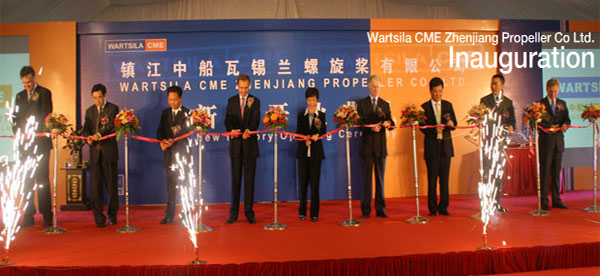
WARTSILA, one of the world's biggest makers of ship engines and propellers, has doubled its China production capacity for its most popular propeller to serve the nation's rapidly growing ship building industry.
The Finnish company yesterday opened a new factory that produces fixed-pitch propellers in Zhenjiang in east China's Jiangsu Province. The 10-million-euro (US$13.45 million) plant is the biggest single production facility for this product in the world.
"The future looks very promising," Ole Johansson, president and chief executive officer of Wartsila, said at the inauguration ceremony.
"The doubling of propeller manufacturing is in line with the tremendous growth of Chinese ship building," he said, noting that the new facility will enable the company to provide advanced propulsion systems, including the industry's largest.
China's ship building output increased 500 percent in the past 10 years on the back of rising demand for vessels to carry the nation's growing exports and imports.
In the first five months this year, 425 ships were contracted in China, accounting for 45 percent of global orders and ranking the nation No. 1 in the world by order number, according to industry data.
The booming industry has attracted both foreign investors and local private capital, including ABB, which provides electric propulsion systems, and specialized makers such as Denmark-based MAN B&W.
The new Wartsila factory, part of a joint venture with China State Shipbuilding Corp, the nation's No. 2 shipbuilder, increases the unit's annual production output to 6,500 tons of fixed-pitch propellers, which are used in about 80 percent of all new vessels around the world.
Wartsila holds a 55-percent stake in the venture, called Wartsila CME Zhenjiang Propeller Co, which was set up in 2004. The new maximum size of the propellers that can be made at the new factory will be suitable for the world's largest container ships, with a single propeller weighing up to 140 tons.
Despite increased output, the proportion for export through Wartsila's China facility will decrease from last year's 35 percent to 25 percent this year, and 20 percent next year as most of the extra output will go to local shipyards.